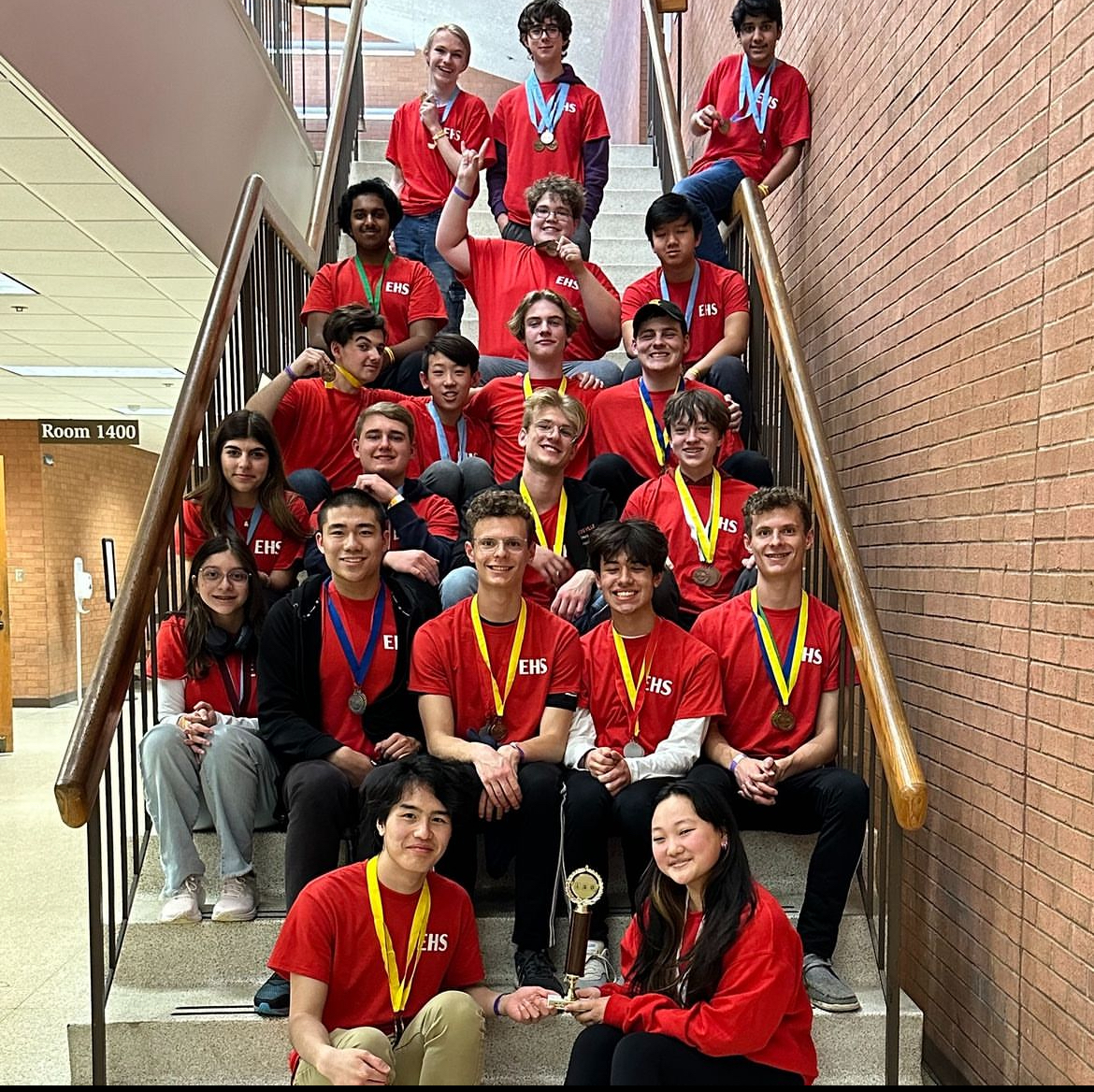The Science Olympiad team surprised themselves and took home a fifth-place trophy at the regional competition on Saturday, March 2, going against schools like Mascoutah, O’Fallon and Collinsville.
According to the official website, Science Olympiad is a “premier” national organization that provides “stem-based challenges” at tournaments, where events fall under categories like Physical Science and Chemistry, Inquiry and Nature of Science, and Life, Personal and Social Science.
Events are further categorized as study events or hands-on events: one based on testing students’ knowledge on a topic and one based on testing their lab skills.
Competing in the categories are groups of two or three team members, each able to compete in up to four events in one general competition.
Senior Hansen Zheng competed in three of four Nature of Science events, Codebusters, Fermi Questions and Write It, Do It. He and other members were surprised at their high group placing at regionals because of how underprepared they were going into the competition in comparison to years past.
“The competition has also seemed to have gotten tougher than last year,” Zheng said. “Hopefully at state we can have another do-over and even beat the score we set last year.”
The format of a competition generally stays the same at regionals, state and nationals, but the event questions get harder as the students advance. To prepare, teams do a deep dive into their competition topic, to gain as much background info as possible, and start building projects for the hands-on events a few weeks in advance.
Senior Robert Molina credits this year’s lack of practice to the decrease in member attendance. In addition to Codebusters and Write It, Do It, he competed in Experimental Design and an Engineering event called Tower.
“We were underprepared this year, because not many members went to the meetings,” Molina said. “When they did, they didn’t stay for very long.”
Despite being an after-school club, Science Olympiad has had a positive impact on students’ academic habits. Though Zheng finds the info given in events is “random” and not applicable in the classroom, the practices and competitions throughout the years have helped him develop “critical” abilities in self-studying and collaboration.
“For Science Olympiad, all your preparation… is done on your own, so you have to learn methods to teach and discipline yourself,” Zheng said. “Coordination with your teammates… and learning to communicate with them is another skill you have to acquire to succeed.”


